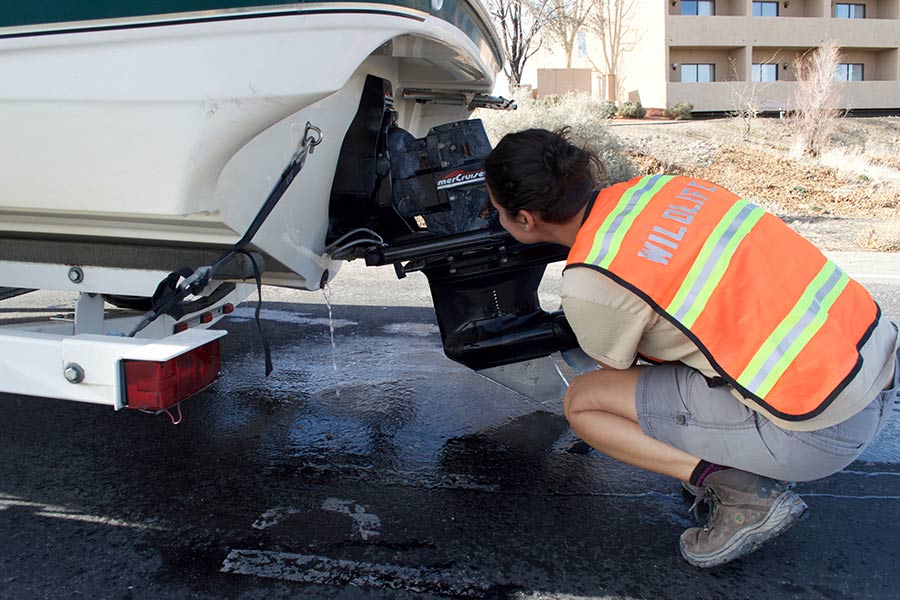Over 244,000 boats inspected for quagga mussels during 2022 boating season
Salt Lake City — The Utah Division of Wildlife Resources and other partnering agencies were again hard at work this year, inspecting and decontaminating boats across the state to prevent the spread of invasive quagga mussels.
Statewide, Aquatic Invasive Species technicians with the DWR, Utah State Parks, Arizona Game and Fish Department and the National Park Service have inspected 244,909 boats and performed 4,276 decontaminations since Jan. 1. Of those total numbers, 66,239 of the boat inspections and 933 of the decontaminations took place at stations in the Lake Powell area. Lake Powell is currently the only Utah waterbody infested with invasive quagga mussels.
Last year, there were more boaters out on Utah's lakes and reservoirs, which resulted in 315,539 inspections statewide and the decontamination of 7,340 boats.
The dip tank that was installed last year at the Stateline Launch Ramp at the Wahweap Marina performed over half — 533 of the total 933 — decontaminations at Lake Powell this year.
"The dip tank continues to be invaluable in improving efficiency for our decontaminations of complex boats," DWR Aquatic Invasive Species Lt. Bruce Johnson said. "To help in these efforts, we have plans to install additional dip tanks in other key locations around the state next year."
This year, DWR conservation officers issued 588 citations and warning citations for violations of Utah laws established to prevent the spread of invasive mussels. The majority of the violations were due to:
- Boaters not taking the mandatory education course and not displaying the certification form
- Boaters and those with other watercraft (like waverunners, paddleboards and kayaks) failing to stop at mandatory inspection stations throughout the state.
- Boaters not removing drain plugs during transport
"While the boating season is winding down for the year, boaters should remember to plan ahead for next year and be sure to take the education course before launching a boat at any Utah waterbody," Johnson said. "We also want to remind boaters that as the seasons change, so do the mandatory dry times for self-decontamination for boats. In the summer, the dry time is seven days, during the fall it is 18 days, and it is 30 days during the winter. Wakeboard boats are defined as complex boats, which require a 30-day dry time, unless they are properly decontaminated. During the winter season, there aren't many available watercraft inspection staff across the state. So we ask boaters going to Lake Powell — or to neighboring states' mussel-infested waterbodies — to please either have their watercraft decontaminated at that location before leaving, or to call us ahead of time if they are going to need a decontamination before their next launch."
Visit the STD of the Sea website for further information regarding boater requirements.
Why quagga mussels are bad
- They plug water lines, even lines that are large in diameter.
- If they get into water delivery systems in Utah, it will cost millions of dollars annually to remove them and keep the pipes free, which can result in higher utility bills.
- They remove plankton from the water, which hurts fish species in Utah.
- Mussels get into your boat's engine cooling system. Once they do, they'll foul the system and damage the engine.
- When mussels die in large numbers, they stink and the sharp shells of dead mussels also cut your feet as you walk along the beaches.

















